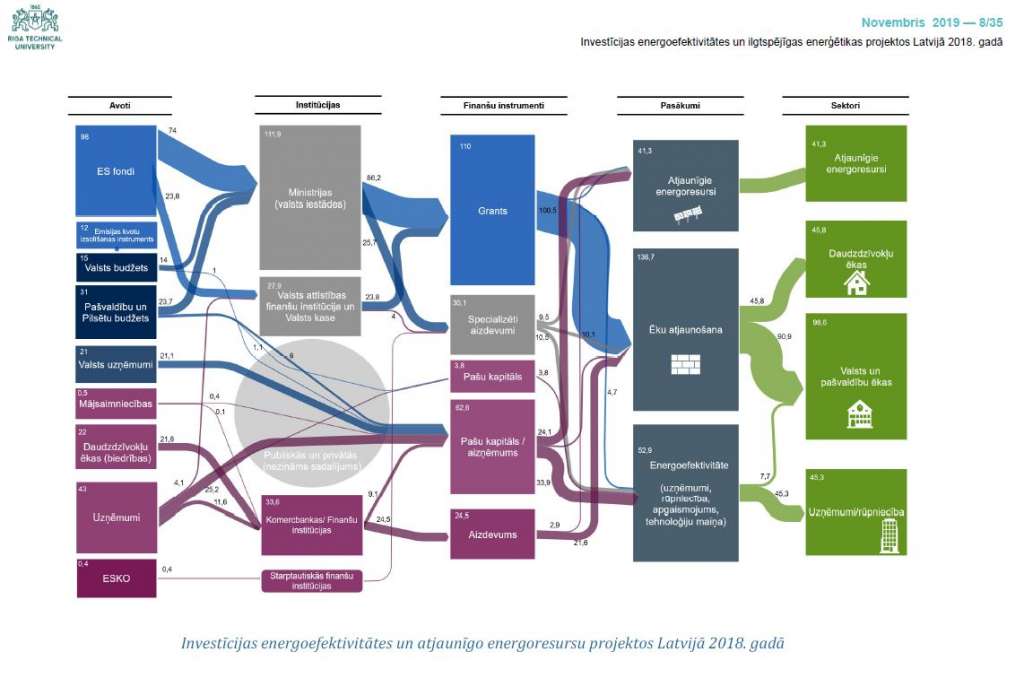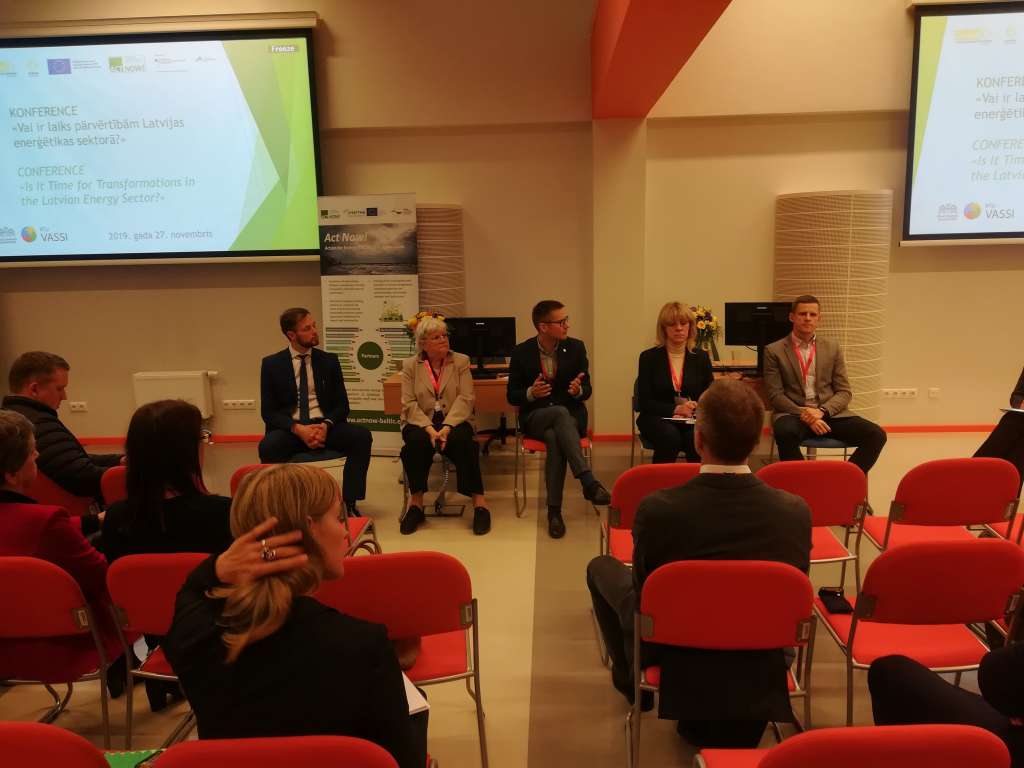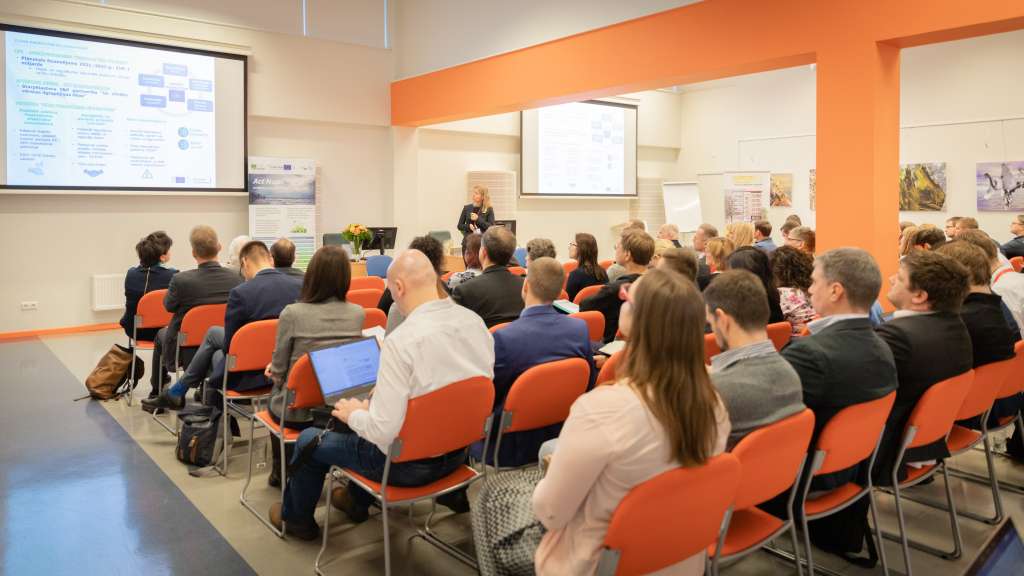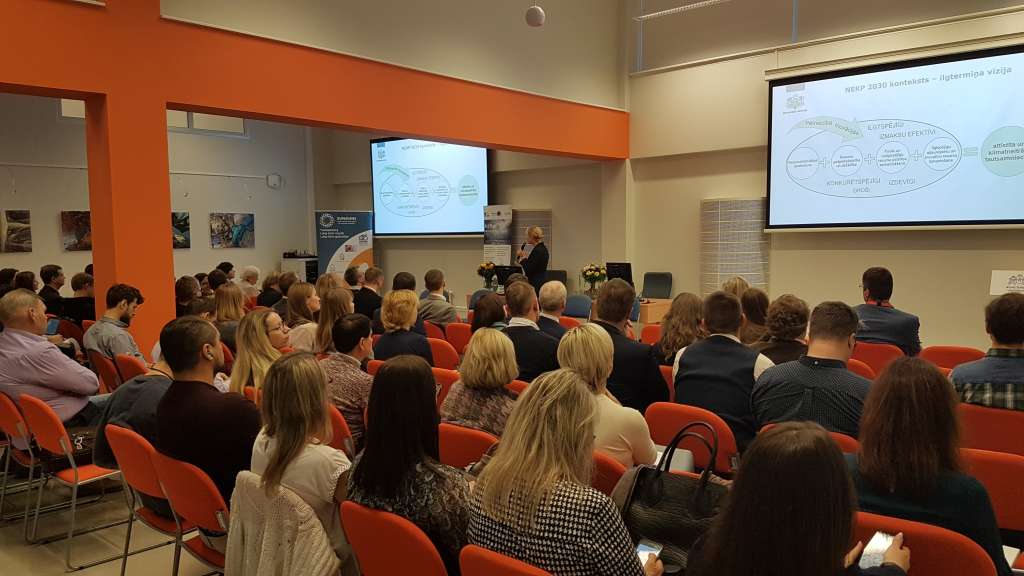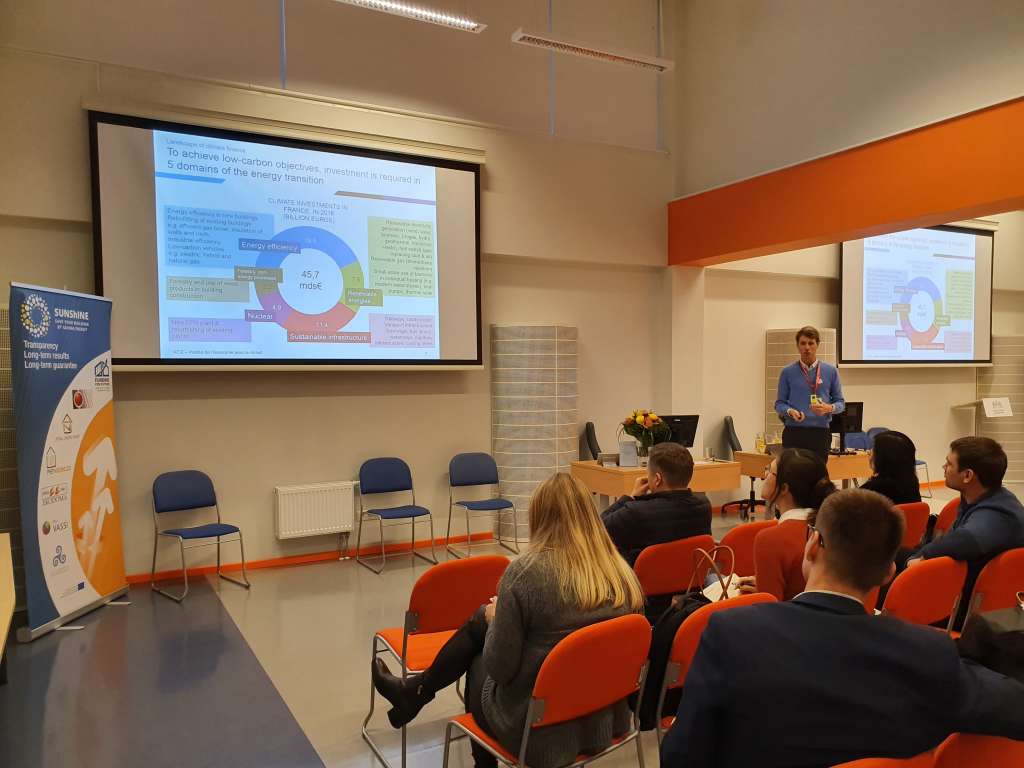Climate investment capacity (CIC2030): Climate finance dynamics & structure for financing the 2030 targets
The Regulation on the Energy Union Governance requires the EU Member States to design integrated national energy and climate plans to ensure the EU’s 2030 energy and climate targets are achieved. The implementation of these plans demands the mobilization of significant capital by 2030.
Czechia and Latvia introduced a package of financial incentives and fiscal policies; their impact is not yet enough to achieve the targets. Know-how on structuring viable projects and experience with significant private capital mobilization are limited and the countries need new knowledge and capacity to raise it.
Germany has been a frontrunner in terms of decarbonizing its energy portfolio. Due to dynamic policy development and investment support, Germany is on track to achieve the renewable electricity target. Some studies suggest though that to achieve other energy and climate targets, the country needs to apply more efforts.
CIC2030 aims to address that challenge and build new capacity. The starting point is already existing knowledge and know-how in Germany which the project will update and then transfer and adapt to national circumstances in Czechia and Latvia with help of implementing partners.
The central outcome are the skills of the public and financial sector to address the investment challenge in the focus countries. Building on a learning-by-doing approach, CIC2030 will produce:
1. analyses of investment need to reach the 2030 climate and energy targets,
2. investment maps to track public finance and private investment flows into climate and energy transition actions, and
3. capital raising plans to close the gap between the need and the current investment flows.
CIC2030 will co-design these products with national target groups thereby addressing their needs and incorporating their data and knowledge so that they could co-own and imbed the products into their decision-making. These actors will therefore be able to better detect necessary low-carbon investment opportunities and support them, contributing to successful completion of the national plans. They will be able to inform the EU policy discourse about their transparency towards the implementation of the EU Energy and Climate Package 2030, international climate commitments e.g. EU “National Determined Contributions” under the Paris Agreement, as well as spending EU and national public budgets on climate-related action. This could inspire the EU level and other EU member states’ decisions on promoting sustainable finance.
PROJECT FUNDED BY:
The European Climate Initiative (EUKI):
PROJECT DURATION:
From September 2018 until December 2020
PROJECT BUDGET:
60 960 EUR
SCIENTIFIC LEADER OF THE PROJECT:
Agris Kamenders
PUBLISHED:
04.12.2018.
MORE INFORMATION:

PROJECT PARTNERS:
From Latvia:
Riga Technical University
From other countries:
Institute for Climate Protection, Energy and Mobility (IKEM), Germany
Czech Technical University in Prague (CVUT), Czech Republic
NEWS
Within the framework of the EU Green deal which aims to transform EU economies and achieve climate neutrality by 2050 and Recovery and Resilience Facility in the context of national energy and climate targets, a sufficient amount of investment in energy efficiency, renewable energy projects and innovative technologies are among the most important issues to tackle.
Therefore, in the framework of the project CIC2030 (Climate Investment Capacity 2030) workshop was organized to bring together policy makers, project developers, researchers and financiers to exchange on lessons learned and discuss future perspectives on energy efficiency project financing.
During the workshop results from the study by Kamenders, A., Rochas, C., Rusnok, D., Novikova, A. “Capital Rising Plan for Energy Efficiency and Renewable Energy Projects in Latvia” have been presented. More information and report can be found HERE.
Lessons learned and future outlook for financing energy efficiency projects in Baltic countries have been presented by Agris Kamenders (RTU), Justinas Bučys VIPA, Aleksejs Kaņējevs and Ieva Vērzemniece (ALTUM) and Raiko Puustusmaa (Ministry of Economic Affairs and Communications of Estonia).
PRESENTATIONS:
- Agris Kamenders “Current investment flows, Investment gap for climate projects and policy recommendations for Latvia”;
- Raiko Puustusmaa “Energy efficiency in Estonia: future Outlook”;
- Justinas Bučys “Financing Energy efficiency in Lithuania: lessons learned and future outlook”;
- Aleksejs Kaņējevs “Financing Energy efficiency in Latvia: lessons learned and future outlook”.
Within the framework of the EU Green deal which aims to transform EU economies and achieve climate neutrality by 2050 and Recovery and Resilience Facility in the context of national energy and climate targets, a sufficient amount of investment in energy efficiency, renewable energy projects, and innovative technologies are among the most important issues to tackle.
Therefore, in the framework of the project workshop is organized to bring together policy makers, project developers, researchers, and financiers to exchange on lessons learned and discuss future perspectives on energy efficiency project financing.
We invite you to join the online seminar “Financing Energy Efficiency in Baltic countries: lessons learned and future outlook”, which will take place on February 23, from 14:00 to 16:30 on the online Zoom platform.
Working language: English
Registration to online seminar here: https://videszinatne.rtu.lv/en/online-seminar-financing-energy-efficiency-in-baltic-countries-2/
An online seminar on energy cost reduction solutions in companies was held on 11 December and was attended by approximately 50 participants. Representation came from various companies, including wood processing, both administrative and educational institutions, and also from municipalities.
The presentations in latvian can be viewed here:
- Agris Kamenders “Introduction to the CIC2030 project and energy efficiency in the industrial sector”
- Janis Klavins “Energy efficiency in heating systems. Heat energy measurements for heating and cooling”
- Arturs Kamenders “Energy efficiency of aspiration systems”
- Gatis Zogla “Compressed air systems, compressors and dryers”
When thinking about company development, new markets and new products come first, there often might not be enough time to analyze and work on reducing existing energy costs. Therefore, within the framework of the CIC2030 (Climate Investment Capacity 2030) project, we’re organizing a seminar during which, together with energy sector professionals, we will look at real examples that can help reduce energy costs. Together we will think about the best possible energy efficiency measures in wood processing companies.
Program and registration here.
Within the framework of the EU Green deal, which aims to transform EU economies and achieve climate neutrality by 2050 and, in the context of national energy and climate targets, a sufficient amount of investment in innovation, energy efficiency and renewable energy projects are among the most important issues to tackle.
Therefore, in the framework of the project CIC2030 (Climate Investment Capacity 2030), we are organizing a workshop and round-table discussion, during which we are bringing together policy makers, project developers, scientists and financial institutions to discuss on possibilities to attract more investments for climate projects.
Date: 5 March, 2020, 10:00 – 14:00
Place: The Scientific Library of Riga Technical university, Paula Valdena street 5, Riga
Language of business: English
| 10:00 – 10:30 | Registration and morning coffee |
| 10:30 – 10:40 | Welcome
Agris Kamenders, Riga Technical University |
| 10:40 – 11:10 | EU Green deal challenges and opportunities for Latvia
Mārtiņš Zemītis, EU Representation in Riga |
| 11:10 – 11:40 | Future outlook of EU funding for Climate and Energy projects
New financial sources and instruments for Energy and Climate projects. What to prepare for in the next planning period. Boriss Kņigins, Ministry of Finance |
| 11:40 – 12:10 | Current investment flows and investment gap in energy efficiency and renewable energy projects in Latvia.
Agris Kamenders, Riga Technical University |
| 12:10 – 12:20 | Coffee break |
| 12:20 – 12:50 | Strategies for attracting private investment for climate and energy projects in Germany and other EU countries.
David Rusnok un Ingmar Jürgens |
| 12:50– 13:40 | Round table discussion.
Strategies for attracting private investment for climate and energy projects. What kind of financial instruments Latvia needs? What kind of support and in which form is needed to reach NECP 2030 targets. Invited for the discussion: – Ministry of Economics – Ministry of Finance – The Ministry of Environmental Protection and Regional Development – ALTUM – The Latvian Environmental Investment Fund – Latvian Baltic Energy Efficiency Facility – Representatives from private banks – NGO’s (BankWach, Zaļā Brīvība) – Renewable energy association – Researchers (RTU, LU, etc.,) – Industry associations |
| 13:40 – 14:00 | Wrap-up, next steps, and conclusions
(RTU) |
Within the framework of the CIC 2030 project, a conference “Is it Time for Changes in the Latvian Energy Sector?” is organized with other project partners, where during the 1st session, scientists from the UL, RTU, Germany and France will share their experience in discussing and discussing modeling approaches that help determine the amount of investment needed in the energy and climate sector. Program and registration here.
Representatives of the CIC 2030 project participate in the forum “Energy and Climate Plan 2030 – Towards a Sustainable Country” organized by the Ministry of Economics at the energy and climate project contact exchange (event will take place on November 21 at H2O 6 block, Durbes Street 4, Riga).
Kick-off meetings in Germany served as a first refinement of the project scope, work plan and methodological approaches that could be applied to the project’s main results in the interest of stakeholders such as the German Federal Ministry of Economic Affairs and Energy (BMWi) and German Federal Ministry of the Environment, Nature Conservation and Nuclear Safety (BMU).
DELIVERABLES
The European Green Deal, as proposed by the European Commission (EC) at the end of 2019, is a new growth strategy that aims to transform the EU into a fair and prosperous society, with a modern, resource-efficient, and competitive economy where there are no net emissions of greenhouse gases in 2050 and where economic growth is decoupled from resource use.[1]
The industrial sector is the third-largest energy-consuming sector in Latvia and with a trend for increasing energy consumption. In 2018, the increase in final energy consumption in the industry was + 13.3% compared to 2017. Despite the high potential for energy efficiency and renewable energy in the industrial sector, innovations relating to the use of new technologies, renewable energy, and IT tools for more efficient resource management remain untapped. According to the National Energy and Climate Plan 2030, in the medium and long term, the industrial sector will continue to grow faster than other sectors in Latvia. Relatively fast growth rates are also forecast in the largest manufacturing sector – wood processing. Therefore, one of the questions addressed during the study is, ‘what is the most effective way to improve energy efficacy in the wood processing industry and contribute to National Energy and Climate targets by 2030?’
Latvia needs to accelerate the transformation of its industrial sector by bridging the investment gap and accelerating the deployment of new energy efficiency technologies in the industry. The potential for applying energy efficacy solutions and renewables for industrial purposes is still largely untapped. With the analysis of three pilot projects, potential areas for improvements have been identified. During the study efficiency benchmarking indicators have been proposed to define improvement and optimization strategies and support decision-making processes for sustainable investments in the industry.
Investment and Policy Plan For the Wood Processing Industry
[1] Sources: EC (2020), A European Green Deal website, https://ec.europa.eu/info/strategy/priorities-2019-2024/european-green-deal_en
The report by Kamenders, A., Rochas, C., Rusnok, D., Novikova, A. “Capital Rising Plan for Energy Efficiency and Renewable Energy Projects in Latvia”, Riga Technical University (RTU), December 2020 represented a plan which aims to help to mobilize capital for the projects addressing targets of the Latvian NECP in the areas of energy efficiency and renewable energy. The country’s required investment in these projects for EE and RES is EUR 4.45 billion in the period of 2021-2030. Available sources to address the investment need include revenues from selling emissions allowances through the EU ETS, subsidies available from the Modernization Fund and Next Generation EU, and the European Regional Development Fund (ERDF), as well as lending from the Latvian Development Finance Institution ALTUM and the European Investment Bank (EIB). Cumulatively, these sources may provide EUR 1.81 billion for financing energy efficiency and renewable energy projects over the next 10 years. Hence, there is a shortage of approx. EUR 2.63 billion in the next 10 years, which has to be tackled by attracting additional private and national budget investment.
Capital Raising Plan (CRP) aims to identify potential sources of funding and financial instruments available to achieve the energy and climate targets of Latvia by 2030. This plan is required because market imperfections (barriers), asymmetric information, and other market disruptions prevent the optimal allocation of financial resources to climate adaptation and mitigation projects. The plan discusses investment needs to achieve energy and climate targets of the country by 2030 and provides information on key barriers to address these needs. The plan also provides information on potential sources of funding with the estimated amounts of capital available from public and private sources (national and international) to finance a low-emission, climate-resilient development pathway as defined under the National Energy and Climate Plans (NECP), as well as gives policy recommendations for accessing such funding.
On 5 March, scientists, businessmen, non-governmental organizations, the financial sector and public authorities gathered at Riga Technical University to discuss current issues related to the EU Green Deal and investment in climate projects.
Mārtiņš Zemītis from the Representation of the European Commission in Latvia gave an insight into the EU Green Course and the changes we can expect in the area of sustainable financing. Boriss Kņigins from the Ministry of Finance told about work on the next EU programming period 2021-2027. David Rusnok and Ingmar Jürgens gave an insight into other EU countries’ proposals with a view to meeting climate and energy goals. Agris Kamenders from RTU gave an overview of the results of the research project CIC2030, mapping investments in the energy and construction sectors.
Based on the results obtained, it can be concluded that in 2018 at least EUR 190 million was invested in energy efficiency measures for buildings and companies, while EUR 41 million (including EUR 21.1 million in Daugava HPP) were invested in RES, totalling EUR 231 million.
Compared to investments in building renovation projects, investments in renewable energy projects are five times less, and half of all RES investments are related to Latvenergo investments. According to the goals of the National Energy and Climate Plan, around EUR 445 million would be needed to invest in energy efficiency and renewables every year for the next 10 years, what is twice the amount invested in 2018.
So far, EU funding has played the most important role in financing climate projects, mainly through grants, investing in state and municipal building renovation projects. Given the high share of grants, private investment in 2018 was relatively small, accounting for 29% of total investment, while EU funds accounted for 42% and state and local government co-financing for 29%, including quota trading revenues.
Looking at the technologies and projects invested, it can be concluded that the major investments were made in the comprehensive renovation of buildings and that the vast majority of projects involved the renovation of state and municipal buildings (42% of the total investment), whereas in the RES sector they have been bioenergy and heating lines replacement projects. There are very few projects that include energy production from other renewable energy sources, energy storage or other innovative solutions. Energy efficiency projects are mainly concerned with the renovation of buildings to meet minimum energy performance requirements, and very few are aimed at achieving near-zero energy building levels or integrating RES technology in buildings.
In order to achieve Latvia’s climate and energy goals, it is necessary to double the amount of investments in energy efficiency and renewable energy projects. Since almost all EU funds for energy and climate projects are used in the form of grants, investment in energy and climate projects is characterized by uneven nature and uncertainty. This could be avoided by establishing stand-alone financial instruments for the development and financing of climate projects. Attracting private investment is critical to achieving the goals of the NECP 2030.
PRESENTATION David Rusnok and Ingmar Juergens
The roundtable was organized as part of the CIC2030 (Climate Investment Capacity 2030) project. The organization of the Round Table was financially supported by European Climate Initiative of Federal Ministry for the Environment, Nature Conservation and Nuclear Safety.
We have developed a climate investment flow chart that allows you to track investment flows in energy efficiency and renewable energy projects in Latvia in 2018. In this report, our aim was to look at how projects have been funded, who have been the biggest investors, how much and in what sectors Latvia has invested in 2018.
Analysing the investments made, it is estimated that in 2018 at least EUR 190 million was invested in energy efficiency measures for buildings and companies, while EUR 41 million was invested in RES (including EUR 21.1 million in Daugava HPS).
Currently, EU funds play a major role in financing climate projects. Currently, EU funds are mainly used in the form of grants to invest in state and municipal building renovation projects. Given the high share of grants in project financing, private investment in 2018 was relatively small, accounting for 29% of total investment, while EU funds accounted for 42%, state and local government funding for 29%, including quota trading revenues.
The report consists of four chapters. The second chapter followed by introduction, which deals with the research methodology. The third chapter describes the results obtained. The conclusions and the discussion section summarize the main conclusions and recommendations for future work on climate investment assessment. The Annexes provide details on the data sources, assumptions and references used in this report.
On the 27th of November the 1st parallel session of RTU conference “Is it Time for Transformations in the Latvian Energy Sector?” was dedicated to the activities of the project “Climate investment capacity 2030”. During the conference, there was an opportunity to learn about and discuss the experiences and approaches of Latvia, France and Germany in assessing investment in meeting the 2030 energy and climate targets.
The conference sought answers to the following questions:
->How can modeling and developed models help to make better decisions?
->What are the modeling capabilities and limitations?
->How can we estimate the amount of investment needed to meet the 2030 climate and energy targets?
Presentations for Session 1 Climate Investment Capacity 2030:
- Modeling Approaches to Assessing the Effectiveness of Energy Policy for Meeting the 2030 Goals, Andra Blumberga, RTU; PRESENTATION
- Modeling Approach to Assessing Climate Investment in France, Hadrien Hainaut, I4CE (ENG); PRESENTATION
- Investment Needs Assessment for Energy and Climate Goals in Germany, David Rusnok, IKEM (ENG); PRESENTATION.
This CIC2030 project is part of the European Climate Initiative (EUKI – www.euki.de). EUKI is a project financing instrument of the German Federal Ministry for the Environment, Nature Conservation and Nuclear Safety. The main objective of the EUKI is to promote EU climate cooperation and to reduce greenhouse gas emissions.
The partners IKEM of our research project CIC2030, has published the first results of their investment in climate and energy projects in Germany. The largest investments were made in energy efficiency projects in buildings, followed by the energy production and transmission sector. Interestingly, the bulk of investment (83% of total investment) comes from private business and household investment. You can find more information in the research.
Climate and energy investment map in Germany. Status report 2016


